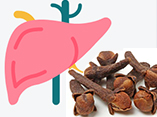Protective Effect of Hydroalcoholic Extract of Clove on Thioacetamide-Induced Hepatotoxicity Animal Model
DOI:
https://doi.org/10.31661/gmj.v11i.1603Keywords:
Syzygium AromaticumAbstract
Background: The drug-induced liver injury (DILI) has a wide range of clinical presentations, from asymptomatic liver enzyme elevations to cirrhosis. Herbal dietary supplements may be beneficial to reduce the risk of hepatotoxicity. This study aimed to evaluate the effects of different doses of clove extracts on humoral factors in rats with hepatotoxicity induced by thioacetamide. Materials and Methods: In this experimental study, rats were divided into nine groups (10 rats per each). The Control group received no treatment. The Sham group was treated with oral administration of distilled water (0.5 ml) for 21 days. The positive control group received thioacetamide (50 mg/kg for three days) intraperitoneally. The clove group was divided into three subgroups and given daily oral administrations of 50, 150, and 300 mg/kg of clove hydroalcoholic extracts (for 21 days). Rats in the experimental group were divided into three subgroups and subjected to 50 mg/kg thioacetamide injection after receiving hydroalcoholic extracts of clove (50, 150, and 300 mg/kg, respectively) for 21 days in the last three days. All rats were sacrificed after 48 hours to measure liver function parameters (aspartate aminotransferase, alanine aminotransferase, alkaline phosphatase, total plasma protein, and albumin). Results: The rats that received thioacetamide showed liver damage by increased serum liver biomarkers and decreased levels of total plasma protein and albumin compared to the control group. The different doses of clove extract resulted in a significant improvement of liver damage by reduced serum liver enzymes levels and increased total plasma protein and albumin. Conclusion: Oral administration of the different doses of the clove extract (50, 150, and 300 mg/kg) for 21 consecutive days could significantly improve the changes associated with serum biomarkers of hepatotoxicity








